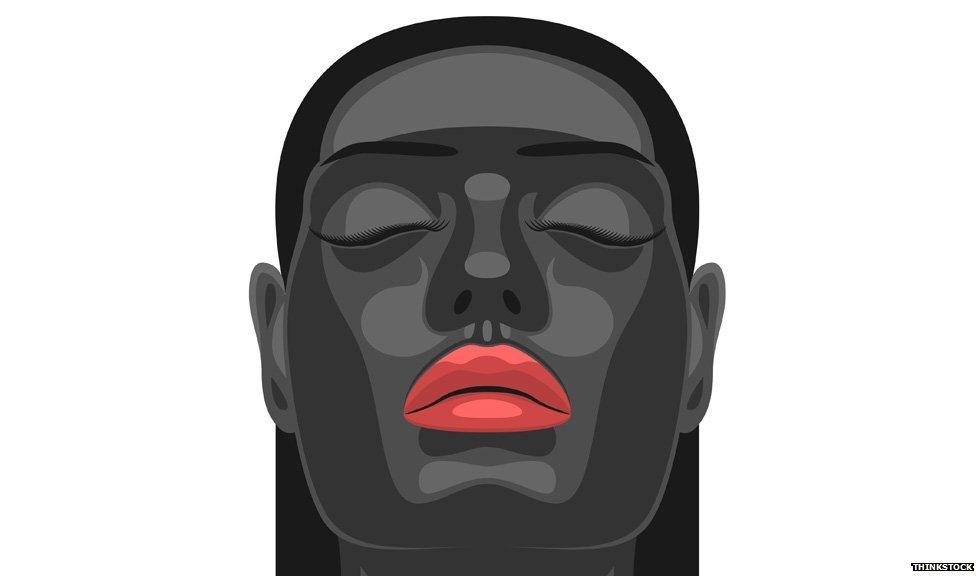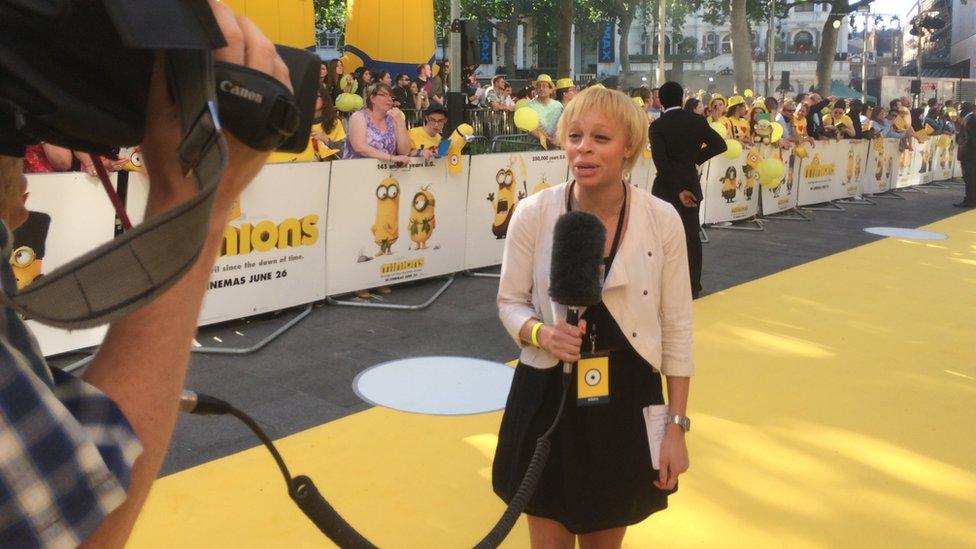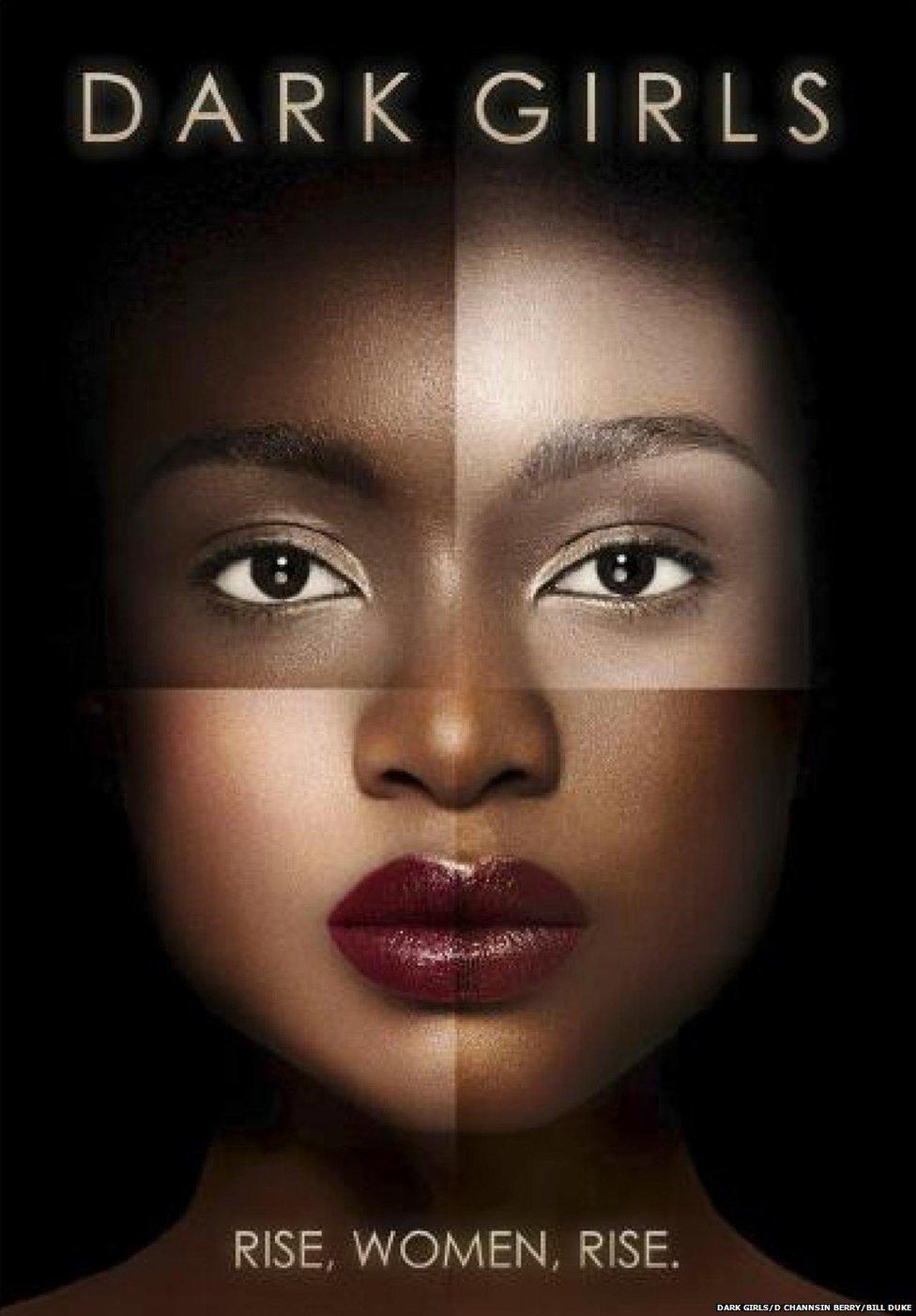Why being 'admired' for having lighter skin is just as offensive
- Published

When you go to a club, there's almost an expectation that you will be rejected, for a number of things: wearing trainers; being far too drunk or looking too young.
But what about for the colour of your skin?
Not just because you are black or Asian, but instead, because you are the wrong shade.
I have fair skin and blonde hair and most people wrongly assume I am mixed race.
I'm not, so have never experienced discrimination around darker skin colour.
Newsbeat's been speaking to a group of young women who say two of them were turned away from a London venue because they were considered "too dark".

Here I am reporting from the Minions premiere
I often get called "lighty" and "caramel" or deemed "not black enough" and I get told by both men and women how much people would "kill" for my skin colour and how people are "spending thousands dying their hair" to be like mine. People of all complexions think it's OK to say things like that to me.
But it is just as offensive to me as being called "darky", "black attack" or "nightshade" is to others.
This isn't a particularly new issue. In the caste system in India, the darker you are the more "lower class" you are deemed.
In Africa and Asia, skin lightening creams are used extensively, and advertising there often suggests having a lighter skin colour will make you more attractive.

In 2013 director Bill Duke premiered his documentary, external, Dark Girls, which sparked a debate about the social acceptances of women with darker skin.
It's been reported for decades, including recently with #flexinmycomplexion which saw women of all shades uploading selfies because they felt their colour is neglected by the mainstream media.
Lots of women used Twitter to join in the #flexinmycomplexion trend., external
Men also took to Twitter to join in too., external
The problem being that there is an inference of beauty around the colour of your skin; as in the fairer you are the more beautiful you are.
It's a problem that seems to be perpetuated by some both in the white and black communities, backed up in the media - magazines, music videos, film, TV and advertising. The portrayal of people with a darker complexion is more unusual.
I know black girls who will go on holiday to a sunny destination who refuse to get in the sun, because they "don't want to get any darker".
In the same vein, I know other black girls who have sat in the sun with the sole purpose of getting as dark as they possibly can, simply because they love their skin like that.
I've been in a queue with friends and a group of black men will ask up and down the line if they can join our group just to be able to get in because they know they won't if they stick with their friends.
This is still the world in which we live in 2015.
Follow @BBCNewsbeat, external on Twitter, BBCNewsbeat, external on Instagram, Radio1Newsbeat, external on YouTube and you can now follow BBC_Newsbeat on Snapchat